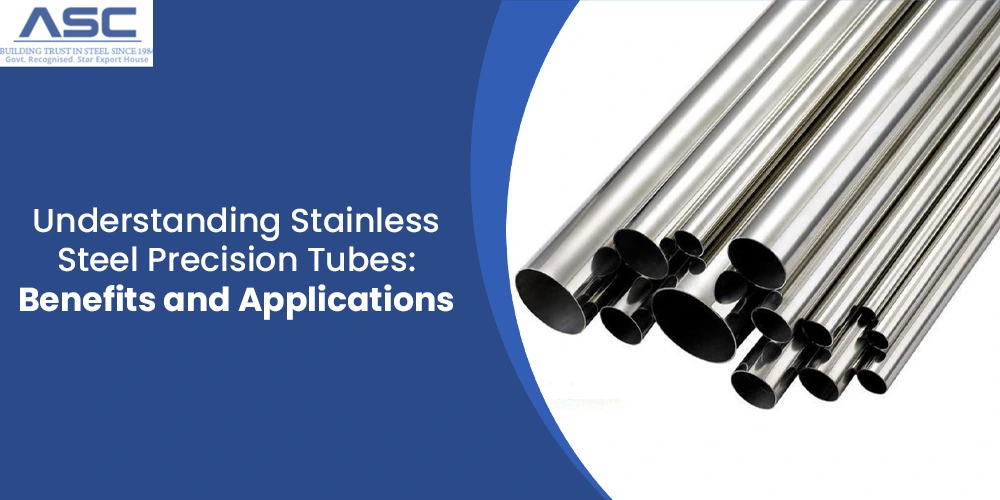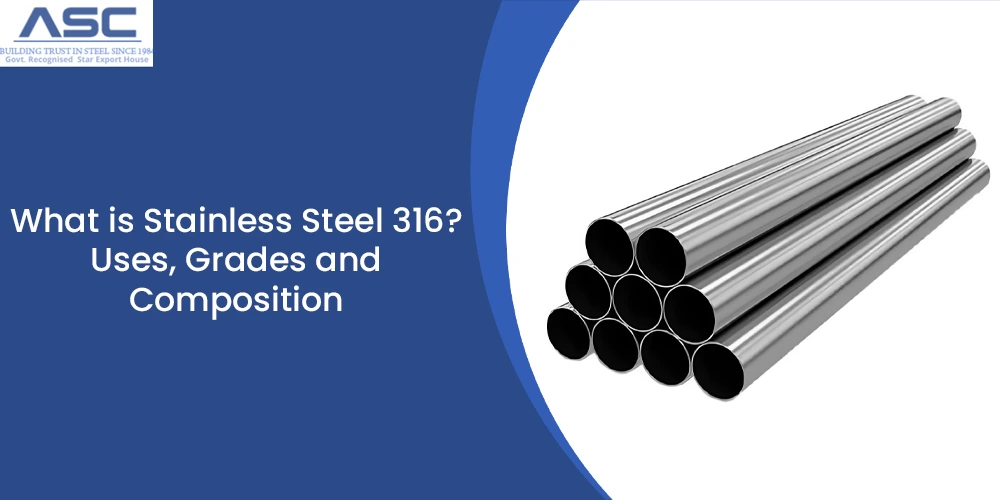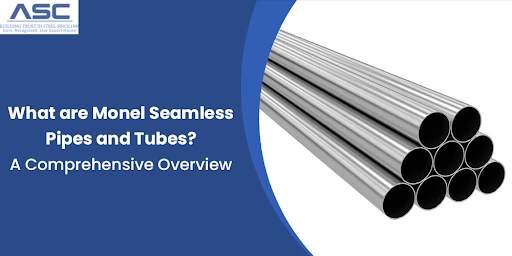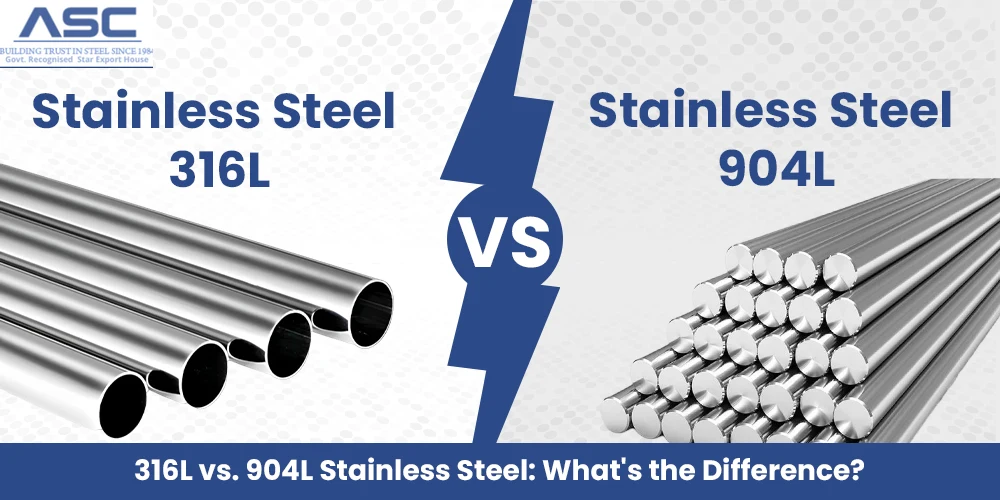Understanding Stainless Steel Precision Tubes: Benefits and Applications
by AMC
Posted on March 07, 2025 at 05:01 PM

Stainless steel precision tubes are widely used in various industries for their structural integrity, corrosion resistance, and dimensional accuracy. These tubes are manufactured with strict dimensional tolerances and superior surface finishes, making them suitable for demanding applications where precision, corrosion resistance, and durability are essential. In this blog, we will explore the key benefits and applications of stainless steel precision tubes.
What is stainless steel precision tubing?
A special type of stainless steel like 304, 304, 321, 316, 316L and 904L are used in precision tubing. It is manufactured with strict dimensional tolerances and precise dimensions. This precision is obtained through advanced manufacturing techniques and stringent quality control measures. Unlike standard tubing, which may have slightly different dimensions and tolerance, stainless steel precision tubing is engineered to meet the exact specifications, including tight dimensional tolerances, smooth surface finish, uniform concentricity, high mechanical strength, and a burr-free inner bore, making it ideal for applications requiring accuracy, reliability, and superior performance. Its precise dimensions in terms of standards and tight tolerance make it suitable for motor vehicles, aerospace, medical, and instrumentation industries.
Seamless Precision Tubes
Precision steel tubes are defined by their tight dimensional tolerances, controlled wall thickness, specific mechanical properties, and smooth surface finish. They are manufactured using advanced drawing techniques to achieve precisely measured internal and external diameters with minimal surface roughness.
Stainless Welded Precision Tubes
Welded precision tubes provide many advantages such as narrow dimensional tolerances on diameter, thickness and a smooth finish. These features enable designers to achieve uniformity of flow under controlled temperature pressure conditions, while fabricators can achieve more precise bending for tube alignment butt welding.
Benefits of Stainless Steel Precision Tubes
Precision tubes produce excellent resistance against rust, oxidation, and chemical corrosion, making them ideal for harsh environments, including marine, chemical, and medical applications. This corrosion resistance is due to the presence of chromium, which creates a protectivepassive layer on the surface, prevents oxidation and continuously regenerates to maintain protection These tubes can be used in humid, saline, and chemically reactive environments, which ensure prolonged performance and reliability without increasing risk of corrosion.
These tubes demonstrate extraordinary mechanical strength, resisting high pressure and temperature without deforming, cracking, or failing.The combination of nickel, molybdenum, and other alloy elements enhances their strength, making them suitable for load-bearing structures, high-pressure piping systems, and heavy-duty devices. Its ability to oppose the effect of stress ensures that they maintain their quality even in extreme operating conditions, such as high pressure, high temperature.
Stainless steel offers excellent weldability without compromising structural integrity making them suitable for complex engineering design and specialized engineering application. Their flexibility allows the manufacturers to create intricatestructural components without the risk of weld failure. These tubes can be welded using tigs, migs, or laser welding techniques, which ensure strong, durable joints that increase the product's longevity and performance.
Beyond its weldability, stainless steel also stands out for its low maintenance requirements, reducing overall costs while ensuring long lasting performance. This durability makes it a preferred choice over materials like aluminum and titanium, particularly in applications where frequent replacement is impractical, such as medical equipment, industrial machinery, and structural components. Its long service life further contributes to cost-effectiveness and reliability in demanding environments.
Applications of Stainless Steel Precision Tubes
Automotive industry
Stainless steel plays an important role in the tube automotive sector, where they are used in fuel injection systems, exit pipes and hydraulic lines. These components require materials with high durability, pressure resistance and excellent corrosion protection to ensure safe and efficient vehicle operations. Additionally, their light properties contribute to better fuel efficiency while maintaining structural integrity in high -performing vehicles
Aerospace industry
The aerospace industry demands materials that offer high strength-to-weight ratio and resistance to extreme conditions. Stainless steel is essential for tube hydraulic systems, fluid transport and aircraft structures, where they provide high reliability in high-pressure environments. Their ability to withstand high altitude pressure variations, temperature fluctuations and mechanical stress makes them ideal for aircraft fuel lines, landing gear components and engine systems.
Medical and pharmaceutical industry
In medical and pharmaceutical industries, stainless steel process tubes are widely used in surgical devices, medical transplants and clinical devices. These tubes ensure clean, non-reactive and biochemical performance, making them ideal for transplants, catheters, endoscopes and hospital-grade tubing. Their smooth surface minimizes bacterial adhesion and contamination of bacteria, the tubes help maintain hygiene and meet regulatory standards in medical applications.
Industrial and chemical processing
Industrial and chemical processing applications require materials that can withstand high temperatures, pressure and corrosive environments. In these demanding settings, stainless steel plays a crucial role in ensuring safe and efficient fluid flow, particularly in large-scale heat exchangers, condensers, and chemical transport lines. Their resistance to chemical reactions, thermal expansion and mechanical stress makes them a preferred choice in industries such as petrochemical, food processing and power generation.
Oil and gas industry
The oil and gas industry operates in some of the most challenging and extreme conditions, where high pressure and chemical exposure can degrade standard materials. Corrosive substances such as hydrogen sulfide (H₂S), carbon dioxide (CO₂), and chloride-rich fluids pose significant risks, leading to material degradation and failure. Stainless steel precision tubes are widely used in drilling operations, pipeline systems, and offshore structures, where they offer exceptional resistance to corrosion, high-pressure conditions, and extreme mechanical stress. Their ability to withstand hydrogen sulfide, high salinity, and aggressive drilling fluids ensures the protection and longevity of critical infrastructure in the energy sector.
Conclusion
Stainless steel provides unmatched mechanical strength, corrosion resistance, and durability, making it indispensable in demanding industries such as aerospace, automotive, medical, oil and gas, and power generation. Its ability to withstand high temperatures, pressure, and chemical exposure ensures long-term reliability and efficiency in critical applications, from precision medical devices to industrial machinery and structural components.
For high-quality stainless steel precision tubes, visit Amardeep Steel to explore a wide range of premium stainless steel solutions.

What is Stainless Steel 316? Uses, Grades, and Composition
Stainless steel is known for its durability and corrosion resistance, making it an essential material in various industries. Among the many stainless steel grades,

